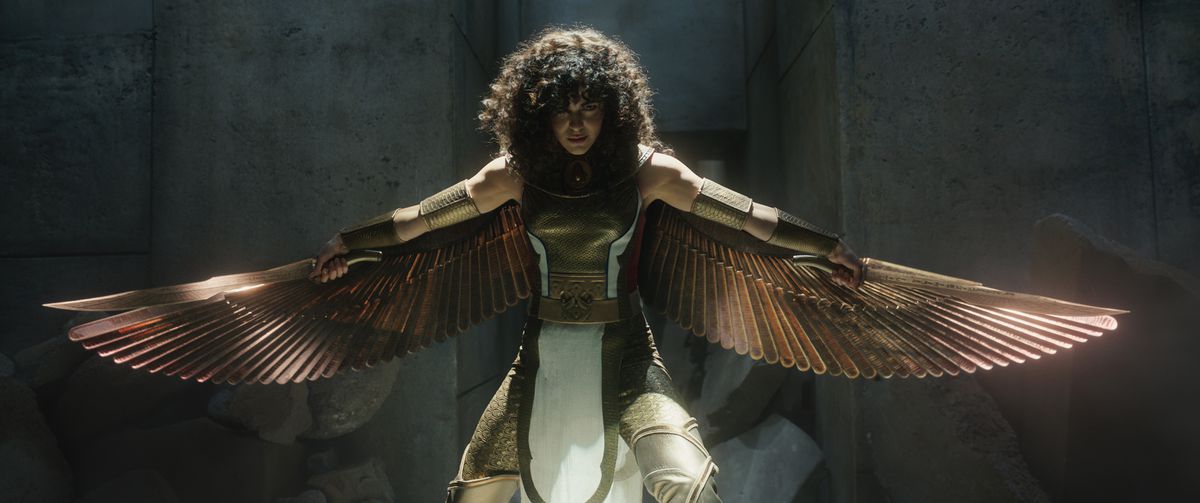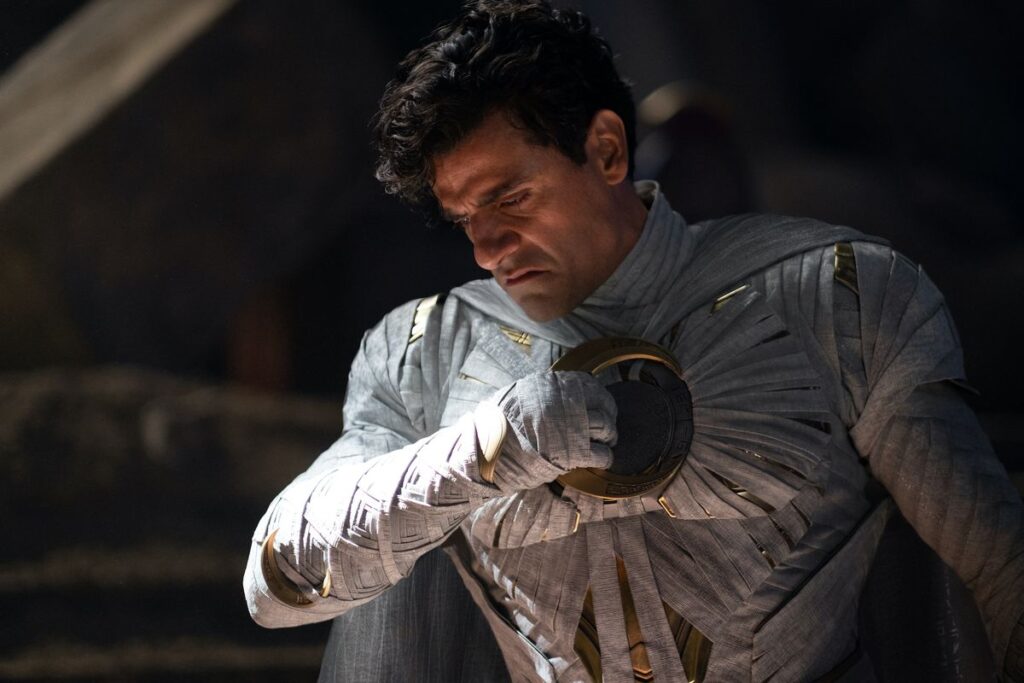[Ed. note: The following contains spoilers for Moon Knight.]
Those who think they have a handle on how last week’s Moon Knight finale went down might want to think again. While the miniseries ended with some closure, as the conflicting Marc Spector and Steven Grant personalities (both played by Oscar Isaac) finally came to accept one another and defeat Arthur Harrow (Ethan Hawke) as Moon Knight, there were still a healthy amount of cliffhangers to ponder. And, as series director Mohamed Diab would like fans to remember, plenty of ambiguity throughout.
Following the conclusion of Marvel’s ambitious new miniseries, Diab briefly spoke to Polygon about the finale’s twists, his hopes for future Moon Knight stories, and how the show might not be as clear-cut as some may think.
This interview has been edited for clarity and concision.
Polygon: Moon Knight is a stand-alone story, but you leave a lot of things open! How do you balance that, giving viewers a closed narrative arc while also leaving the final state of Marc/Steven in limbo?
Mohamed Diab: It was very important for us to see the world through someone’s eyes that has DID [dissociative identity disorder]. That kind of disorientation — it’s not a gimmick, those blinks. It’s not a gimmick in the action as much as this is how life feels — like you can just black out and discover that something did happen that you never thought you would do, that you were responsible for something that you didn’t do. So that was very important.
Photo: Gabor Kotschy/Marvel Studios
But I think after a while, people are going to consider [Moon Knight] a second-viewing show or a third-viewing show. There’s so many loops and so many layers. There’s a lot of things that you think, OK, I understand what’s real and what’s not. But when you go back and question it — It doesn’t feel like I know exactly what’s going on. And again, this is how we feel Marc and Steven’s life could be, and whatever we feel like we know about Marc and Steven, I think the journey, if we’re allowed to go back and expand it one day, could be even crazier than anything that we think it is.
Let’s talk about that big cliffhanger: The show ends with Marc and Steven accepting each other and believing they’ve come to terms with their condition, but then Jake Lockley, a third personality, is introduced. How do you balance that journey of healing with the idea of a new persona the Marc and Steven aren’t aware of?
I think [Moon Knight] has room for expansion one day, because we think it feels like, at the end of the journey before you see the post-credits scene, OK, the character arc is full. Marc and Steven learn to live with each other. That’s what this journey is about. But maybe there’s another trauma that we don’t know about [that brings about] Jake’s blackouts. You can’t understand the full story without understanding what happens to Jake, which is something that we threw at the end, because we felt he deserved to have a full character study on his own.
And maybe there are others? Maybe? Who said that Khonshu’s not a voice in [Marc’s] head? … I’m telling you, there’s lots of things when you go back and watch it, you’re gonna think OK, there’s a lot of theories here. It’s not a gimmick — maybe this guy’s mind is so fractured that we don’t even grasp how effed up he is.

Image: Marvel Studios
I also want to ask about Layla — she gets the powers of an avatar, but unlike Marc, she rejects the servitude that Khonshu requires. What makes her journey different? What was important about making her transformation distinct from Marc’s?
First of all, she’s paired with a character that is the opposite of her, where [Taweret] it is all like, feminine and bubbly. It’s the opposite of [what] Layla is, and I love opposites. Just imagine Layla hearing Taweret’s voice in her head, that’s going to drive her crazy, trying to convince her to stay as an avatar and maybe learning or not learning if she needs to be an avatar or not.
But I want to tell you something very important. You don’t know how that moment of Layla becoming a superhero is big in Egypt, the Middle East, Southeast Asia. For my daughter, when she was 5, she always wanted to straighten her hair, because she never saw herself in any animation. And today, girls who look like Layla can look up to her and believe that they can be whatever they want. Egyptians making the show behind the camera and having Egyptians in front of the camera, using Egyptian music. People believe that they can do anything. You know, as part of the world’s developing countries, sometimes they feel like the West is so superior, like our art is not important. Like we’re not enough to make a show like this. But now they believe they can make a good show. Now they believe that it’s their music people are in love with in the show, the Egyptian composer Hesham Nazih. So it’s becoming a national pride there, and I’m so proud of that.

